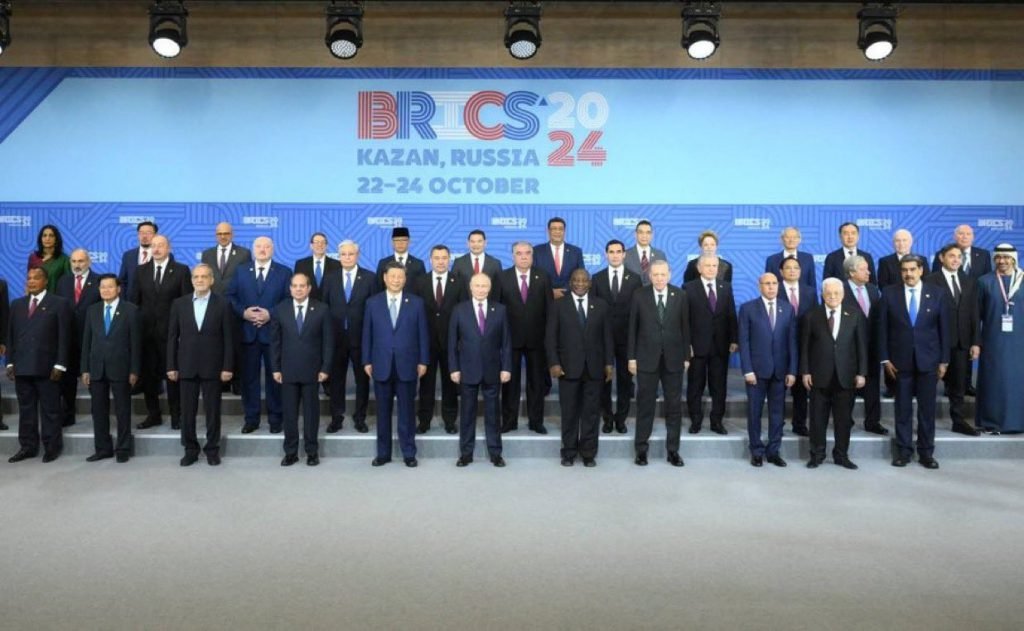With the BRICS expanding for the second time in two years, the economic alliance has announced its newly instituted partner nation rules, with one key difference among them. Indeed, the bloc welcomed 13 new countries with partnership status as its global standing continues to strengthen.
The decision was officially unveiled at this year’s annual summit. Moreover, it happened 12 months after the bloc officially expanded for the first time since 2001. Specifically, it welcomed four countries to join the BRICS bloc, with the United Arab Emirates (UAE), Egypt, Iran, and Ethiopia joining the group.
Source: AFP
Also Read: BRICS Efforts Falter as Experts Say US Dollar Will Strengthen in 2025
BRICS Partner Nations Unveiled as Alliance Announce Rule Change
The last two years have seen massive shifts take place in a geopolitical realm. Following Russia’s invasion of Ukraine, Western sanctions took a massive toll on the invading country. Thereafter, Moscow turned to its BRICS allies and the global south as de-dollarization became an immense priority.
The allure of those policies was clearly shown in nations jockeying to join that emerging group. Now, the bloc has expanded twice. Indeed, the official membership list has grown, as well as the development of its very own partnership nation-tier coming to fruition. Now, BRICS has announced partner nation rules with one very important difference.
Source: AtlanticCouncil.org
Also Read: Trump Tariff Threat Has China & BRICS Eyeing Key Move to Ditch the US Dollar
According to Russian Deputy Foreign Minister Sergey Ryabkov, BRICS partners are able to submit ideas but are not permitted to vote on them. According to Ryabkov, partner status “presupposes participation in BRICS mechanisms,” yet he assured, that “they are not allowed to make decisions.”
This aspect of the partnership plan was not made public prior to the announcement of its creation this year. It will be interesting to hear how nations react to the terms. Moreover, its impact on future participation and interest will showcase how the economic alliance is viewed internationally.


